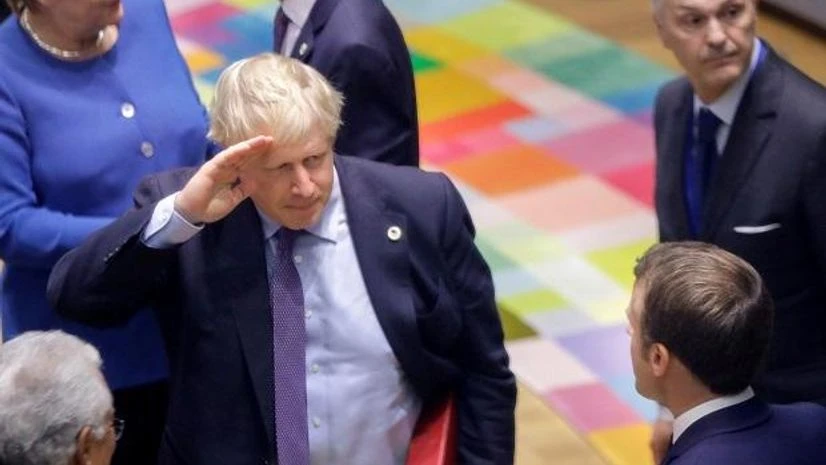British Prime Minister Boris Johnson was dealt a fresh blow Monday when the speaker of parliament denied him a second shot at getting his Brexit deal passed just 10 days before the deadline. House of Commons speaker John Bercow -- a colourful figure who has played a starring role in the Brexit drama -- said Johnson was not allowed to push for the same vote twice in the same parliamentary sitting.
Lawmakers decided at their first Saturday session since the 1982 Falklands War to force the Conservative leader to ask Brussels to postpone the October 31 divorce by three months.
"The motion will not be debated today because it would be repetitive and disorderly to do so," Bercow said.
Johnson is trying to secure a break from Brussels that severs many of the island nation's economic relations with Europe after 46 years of EU membership. But lawmakers refused on Saturday to give their backing to his revised divorce plan until all the domestic legislation needed to ratify it has passed.
Johnson's foes are now forging new alliances and trying to attach amendments that could either force him to push for closer trade ties with the EU -- or abandon the deal and accept a third delay this year. The option of extending Brexit is now in the hands of the 27 remaining EU member states.
Britain has been struggling to agree on how to leave the EU ever since narrowly backing Brexit in a 2016 referendum that did little to end old arguments about the country's place in the world.
More From This Section
Johnson has built his entire Brexit strategy on the premise of using the pressure of time to force everyone to stop bickering and agree an exit plan by the end of the month. Britain ended up sending three letters to Brussels on Saturday night -- including an unsigned one to seek another extension.
In one of the letters, Johnson said an "extension would damage the interests of the UK and our EU partners" and that he was firmly against a delay. The manoeuvre is designed to minimise the political damage of Johnson going back on his word and seeking an extension ahead of an early general election most expect in the coming months.
But British Brexit minister Stephen Barclay told parliament Monday that European Council President Donald Tusk "has accepted the request as valid and indicated he is considering it and consulting with member states". European officials have the option of extending the deadline for just a few weeks or possibly many months to give Britain more time to finally make up its mind.
German Foreign Minister Heiko Maas said he "would not rule out a short technical extension". Scotland's top civil court decided Monday to continue watching Johnson and intervene should he try to avoid accepting any delay offered by the EU.
The focus now switches to the government's attempt Tuesday to get lawmakers to support domestic legislation in the accompanying Withdrawal Agreement Bill.
Success or failure then would set the course for the coming week and largely determine whether Johnson's will get his October 31 divorce.
But the deck seems stacked against Johnson. The main opposition Labour Party is trying to create a cross-party alliance that would back Johnson's deal on the condition that it is fixed to keep Britain in a customs union with the EU.
Johnson and his supporters say this would kill the point of Brexit by keeping Britain tied to Europe and unable to strike its own trade deals with powers such as China and the United States. Labour is trying to create a quick marriage of convenience with Johnson's nominal allies in Northern Ireland's hardline Democratic Unionist Party.
The DUP broke ranks and voted against Johnson's agreement Saturday because it created new trade regulations for goods moving between Northern Ireland and the rest of the UK. The Brexit-supporting DUP appeared open to the suggestion of a customs union after rejecting another amendment backed by Labour that would put up any eventual deal for a confirmatory referendum.
Hundreds of thousands of people rallied in London on Saturday demanding a second national vote on Brexit that could overturn the results of the 2016 referendum.

)
